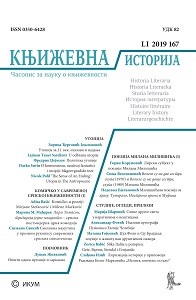O komunizmu, naučnoj fantastici i utopiji: blagoevgradske teze
On Communism, Science Fiction, and Utopia: The Blagoevgrad Theses
Author(s): Darko SuvinSubject(s): Theory of Literature
Published by: Институт за књижевност и уметност
Keywords: Communism;Science Fiction;Utopia/nism;Anti-utopia;constituted absence;
Summary/Abstract: Following Hesiod’s proceeding of splitting the good and bad Eris, in the three parts of these Theses, Communism, Science Fiction, and Utopia/nism are split between the two poles and examined. In SF the role of Estrangement and the Novum is revisited; both are now seen as subject to encroaching fakery. Most articulated is Part 3 on good and bad utopianism, with a discussion of anti-utopia, defined as a targeted and openly political use of a closed horizon to refute, ridicule, andrender unthinkable both the utopia of a better possible world and the dystopia.Entropic closure and the early Disneyland and disneyfication are explored to understand the anti-utopia that lives us. As different from all earlier variants of utopia/nism, people are now wholly and permanently inside this fake utopia. The theory of utopia/nism, axiomatically postulating utopias are not realizable, can be salvaged by assuming eutopia is in anti-utopia latently present as a constituted absence.
Journal: Књижевна историја
- Issue Year: 51/2019
- Issue No: 167
- Page Range: 41-64
- Page Count: 16
- Language: Serbian

